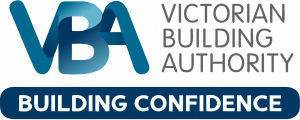A water softener system installed in your household or workplace in Melbourne can significantly enhance the water quality for your regular usage.
What is “hard water”?
Does washing laundry require comparatively more quantities of detergents? Are limescale/crusty sediment deposits becoming visible in your plumbing fixtures and appliances? Are clothes looking dull in colour after a wash? These can indicate the water quality is ‘hard’.
‘Hard water’ refers to water that has high mineral concentration, primarily compounds of magnesium and calcium. The levels of water’s hardness can be measured in milligram per litre (mg/L) or parts per million (ppm), which gauges how much-dissolved solids (Total Dissolved Solids or TDS) exist in it.
A study by the Cooperative Research Centre for Contamination Assessment and Remediation of the Environment (CRC CARE), University of South Australia, noted that ideally the optimum range of TDS in water should not exceed 500 ppm (as per Australian Drinking Water Guidelines).
Water with 0–60 ppm as calcium carbonate is classified as ‘soft’; 61–120 ppm as moderately ‘hard’; 121–180 ppm as ‘hard’; and more than 180 ppm as ‘very hard’.
To accurately know the quality of water in your premises, take help from licensed plumbing professionals, such as Doherty Plumbing Solutions.
Water softener – how does it work?
A water softener primarily aims to reduce the mineral content in the water that increases its hardness. This mechanism replaces the magnesium and calcium concentrations in the water with sodium or potassium, i.e., exchanges these ions, thereby improving water quality.
The softeners come with in-built resin beads through which this exchange occurs. These need to be regularly cleaned, so that the beads can continue performing efficiently.
How is a water softener different from a water filter?
While a water softener reduces the amount of minerals in the water, water filtration helps tackle the presence of contaminants in it, such as bacteria, rust sediments, etc. A softener treats the water chemically. Filters utilise physical barriers to improve water quality.
Therefore, a water softener and a water filter can be installed simultaneously in your Melbourne residence or workplace, as per personal requirements and preferences.
Benefits of using a water softener
- Using a water softener helps to reduce the build-up of mineral deposits on bathroom/kitchen fixtures, inside pipelines, and appliances. This increases their longevity, thanks to less damage, thereby saving on repair bills.
- Mineral deposits make the pipework narrower, requiring more pressure for water to flow. Besides, more soap/detergents would be needed to shower/wash fabric as hard water has lesser capacity to form adequate lather. Installing a water softener can lead to savings on energy bills and resources.
- Better for the health. Softer water moisturises the skin better, unlike hard water that increases chances of dry and irritable skin. Some people also find consuming softer drinking water a better option.
- Cleaner, brighter and more breathable clothes. Lesser mineral concentrations in the water will reduce deposits on the textile materials and allow the detergent to attack any stains more effectively. This will also do away with stiffness of the fabric resulting from deposits.
Where do I get help with information about water quality in Melbourne?
Water quality in metro Melbourne is quite good, meaning there is not always a pressing need to install a water softener. However, in some areas of regional Melbourne, this can become a possibility, if the water quality is found to be hard.
For more information on water in your region, please visit these links:
Melbourne Water – https://www.melbournewater.com.au
Environment, Land, Water and Panning (Victorian Government) – https://www.water.vic.gov.au/water-reporting/water-in-your-region



